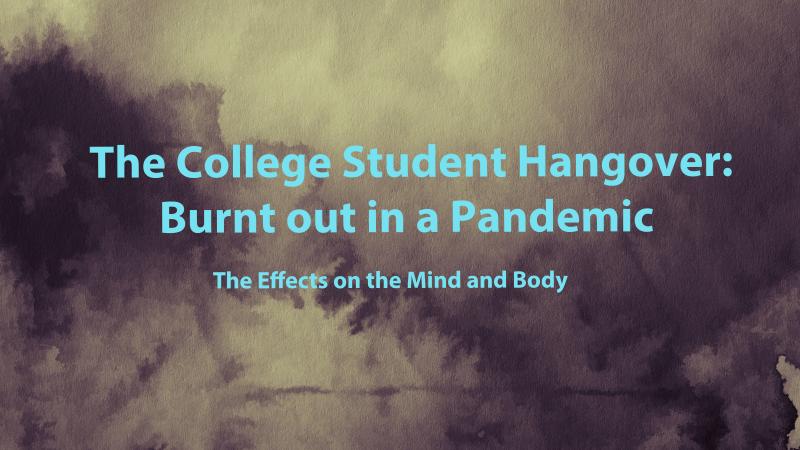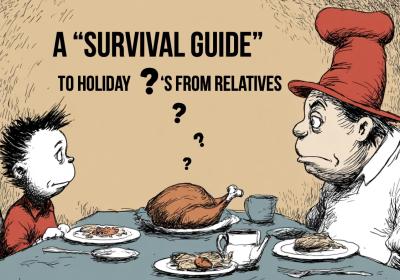
The effects of college burnout: a story from a student perspective.
College life is not for everyone as it is stressful physically, emotionally and financially. As I continue to live and work through the coronavirus pandemic, I noticed various changes in my body and mind.
Balancing work, school and life is not easy as a college student, being stressed on a daily basis has been shown to be unhealthy.
According to a mental wellness study done by American Campus Communities College (ACC), 76% of respondents feel more stressed, not because of COVID-19 but because they are taking more courses at their university or the respondents are returning, or entering, a university to focus on earning their degree.
What is Burnout?
This is what I think of as the college student hangover: body pain, headaches, dissociation, the want to constantly sleep and the lack of focus that comes with too much partying.
However, what about burnout?
Burnout is described as the feeling of exhaustion, lack of motivation and lack of emotional strength. Burnout is the result of stress and frustration and can often lead to long-term effects and damage to the body and mind.
As a college student, I often feel disconnected as I try to balance my work, school and life. I find it difficult each day to keep up with my assignments, as I have to work to pay for tuition, books, and gas to get to class. I also have to manage life outside of the classroom and workplace, which is difficult as I have family matters that require urgent attention every day.
While I work during the day Monday-Friday, I go to class on designated school days and work on my assignments in a dark room until 3 a.m. every day. Even after my shifts at work, I will pull my phone out and do what assignments I can before I head home for the day.
As I struggle to balance my schedule, I constantly have this feeling like I am lost as I often spend a lot of time crying if I can’t do assignments or if I turn them in late. I can’t express how much stress I go through daily—the constant headaches and body pain I would get from worrying about how well I do on an assignment, takes a toll on the mind and body.
While my balance between work, school and life was often difficult to keep, the pandemic has played a role in ruining that balance. Over winter break, I tested positive for COVID–19. It took me 10 days to get better and return to work so I could pay for tuition, books, groceries and other bills. This has made my experience worse as I lost focus much quicker and zone out more often.
What is dissociation and dissociative disorders?
As burnout can contribute to many things like lack of focus and stress, there is something called dissociating and there are various types of dissociative disorders.
According to the Mayo Clinic, dissociative disorders “are mental disorders that involve experiencing a disconnection and lack of continuity between thoughts, memories, surroundings, actions and identity.” They also mention that this is a response, sometimes, to trauma that can be used as a coping mechanism.
The types of dissociative disorders include dissociative amnesia, dissociative identity disorder and depersonalization-derealization disorder.
Dissociative amnesia is mostly memory loss and confusion and often you feel lost, much like when you drive and forget the past few stops you have made or forget where you are going.
Dissociative identity disorder (multiple personality disorder) is when you have more than one identity and “switch” through all the identities you have. This disorder feels as if you no longer feel like yourself and are living with other people, and have various voices in your head.
Depersonalization-realization disorder is the detachment from reality. Oftentimes you feel lost and separated from others and don't feel like yourself, that then leads to brain fog or the feeling of living in a simulation.
Physical and emotional burden of the ultimate college burnout
As COVID, currently the omicron variant, continues to rampage, I have noticed an increase in exhaustion over the course of the semester. Every day I reach closer and closer to my graduation date in the fall semester, but every day it feels as if it is further and further away.
I often think about how strange it is to be in college in the middle of a global pandemic and how it doesn't feel real–feels more like a nightmare that I can’t wake up from.
A nightmare of burdens is quite a nightmare, not being able to wake up from it and constantly reminded of those burdens is a nightmare itself.
In study conducted in 2020 by the Harvard Business Review, 32% of students knew a family member or friend that was sick with COVID, 60% lost income which contributed to an increase in stress, 54% felt they could not control important things in life, 56% felt isolated, and 15% worried about housing, food and security.
While 60% of students are concerned they will not be able to find a job, 58% are concerned they will not be able to keep up with living expenses, and 50% face financial burden or instability as they get closer to graduation.
Physically speaking I have had some body changes due to the burnout, like body pain and constant headaches, but I have experienced an increase in exhaustion and dizziness.
To view the complete list of symptoms, visit the Choose Therapy website.
There are many burdens that cause stress and as we continue to live through the pandemic, the only question I have is, will it get worse?


